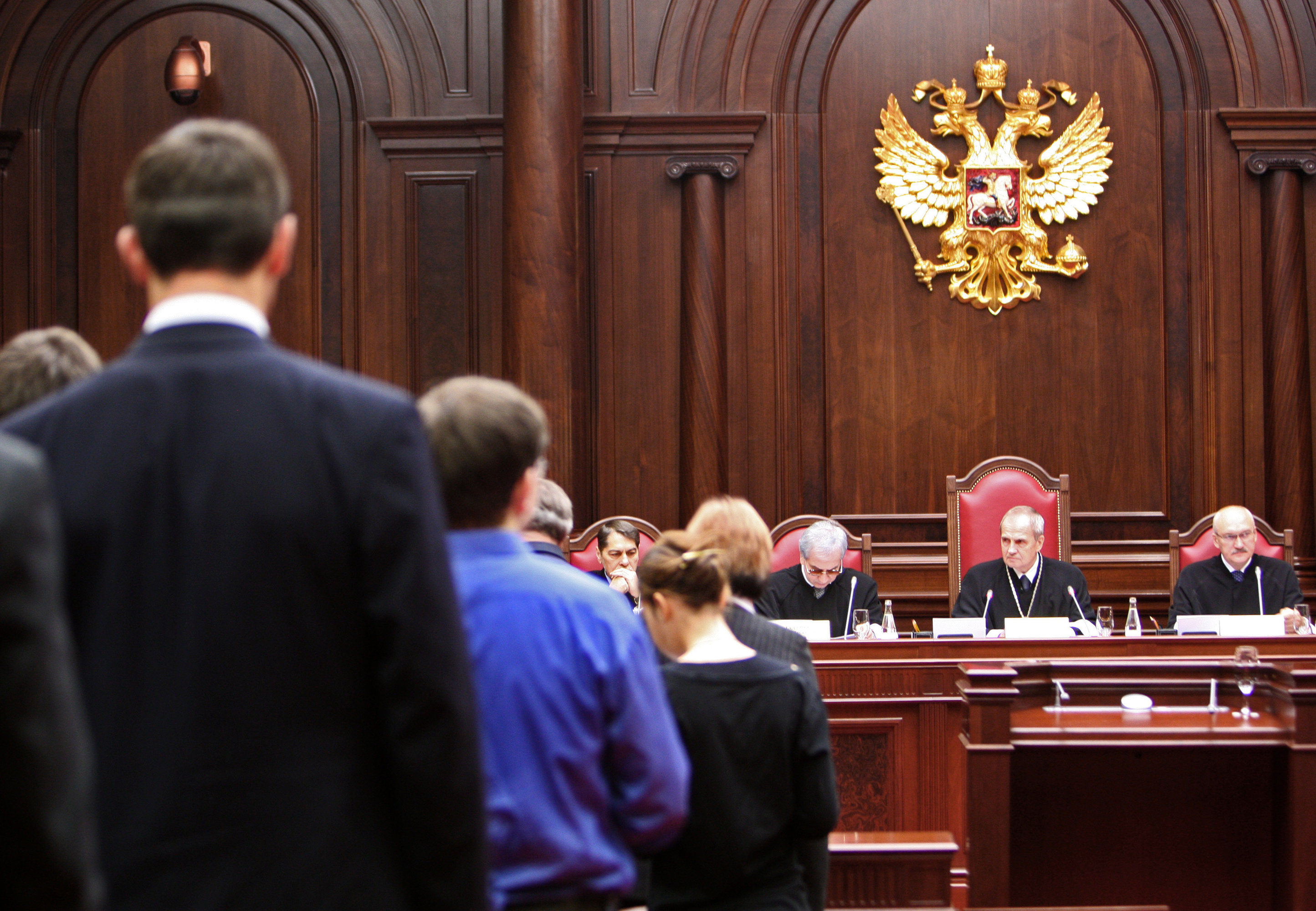MOSCOW, Oct. 28 – RAPSI. For the more than 20 years of its operation, the Constitutional Court of Russia has shown itself to be an independent and impartial body, a quality that prominent legal experts polled by the RAPSI Agency described as “unpredictability.”
At the end of October the Court marks its 20th anniversary. On October 29-30, 1991 it elected 13 out of its 15 judges, on October 30 it held its first working session, and on January 14, 1992, its first statutory meeting.
Unpredictability as compliment
According to Mikhail Barshchevsky, a well-known lawyer, the description of the Constitutional Court as an “unpredictable” judiciary body is its greatest compliment. “This is a positive thing, because unprogrammed and unpredictable court rulings are evidence of a creative element that is present during their adoption, and proof of the court’s independence,” he said.
Barshchevsky believes the court has been successful all these years because it has managed to avoid making any erroneous fundamental decisions, ensuring citizens’ constitutional rights and framing the bulk of existing normative-legal legislation. At the same time, he stressed that it is too early “to draw a line” under the court’s proceedings, because interpreting the Constitution is always a current, topical issue.
“Constitutional interpretation is a living process, because society needs a body that will regularly adapt constitutional norms to the realities of life,” the lawyer explained.
Barshchevsky also pointed to the considerable role the court plays in social processes.
Lawyer Genrikh Padva in turn said that the “unpredictability” of the Constitutional Court is no doubt its central positive feature, but it is not yet fully developed. Padva noted that the establishment of the Constitutional Court in Russia in 1991 set an important precedent, because it was the first time the judiciary had been empowered to watch over executive decisions and interpret the basic law of the country.
“Establishing the Constitutional Court was a tremendous breakthrough and it played a role in forming Russia’s legal system. Today I see a need to expand the scope of the court’s activities,” the lawyer added.
The art of lawmaking
Lawyer Igor Trunov said the Constitutional Court’s main positive feature is that it brings together a large group of professional legal experts within its walls.
He stressed that demand for the professionalism of the court was even higher, because lawmaking in Russia is practiced by people very much in the public eye but with little experience in legal matters. “Look at our lawmakers, or our deputies. They are all actors, athletes or millionaires, people poorly versed in the law, which means the bills that they make are poor in quality,” he explained.
Trunov gave special credit to the court for making a large number of petitions to the European Human Rights Court unnecessary.
Yaroslav Moshennikov, head of legal practice for DLA Piper in Moscow, said that the years that the Constitutional Court has been in existence have made it one of the most important and respected courts in Russia. He called attention to the consistency and validity of the legal positions expressed in its judicial acts, and also the
absence of immediate and opportunistic considerations.
“As a lawyer, I always enjoy the detailed legal commentary that the court attaches to its pronouncements,” Moshennikov said.
The Constitutional Court of Russia ensures that federal laws, presidential acts, decisions of the Federation Council, State Duma, and government, as well as republican constitutions, charters, laws and other regulations issued in the regions and concerning matters of joint and individual jurisdiction, are in conformity with the constitution.



